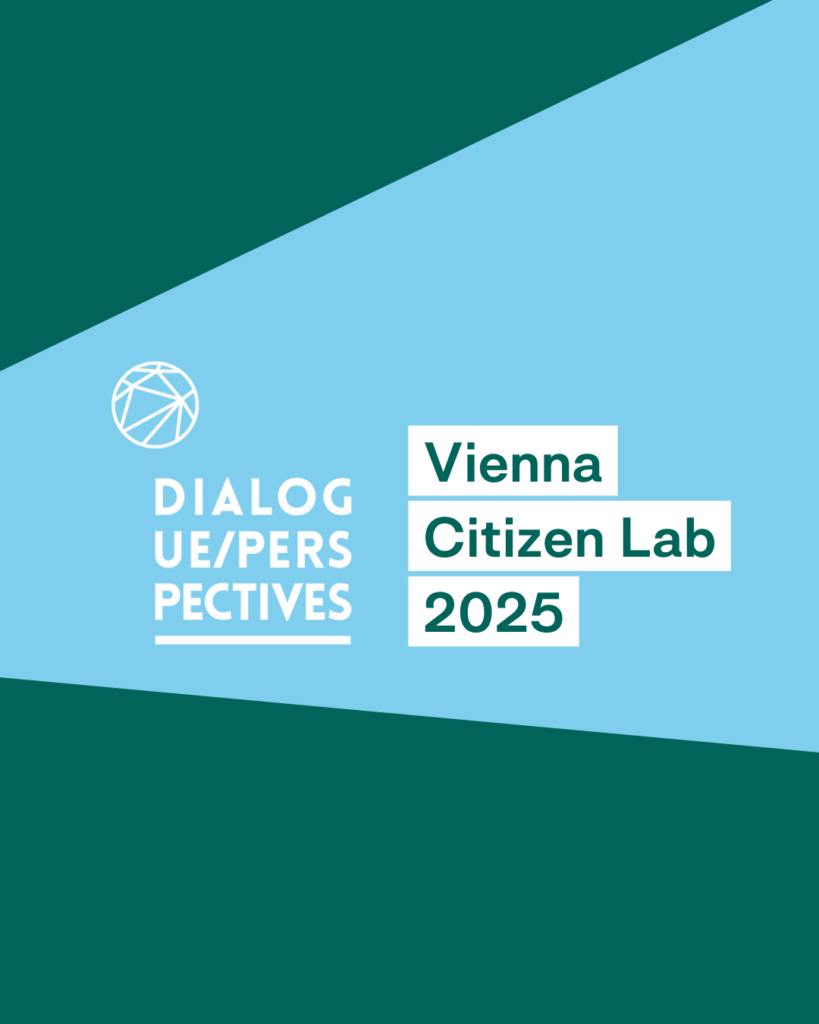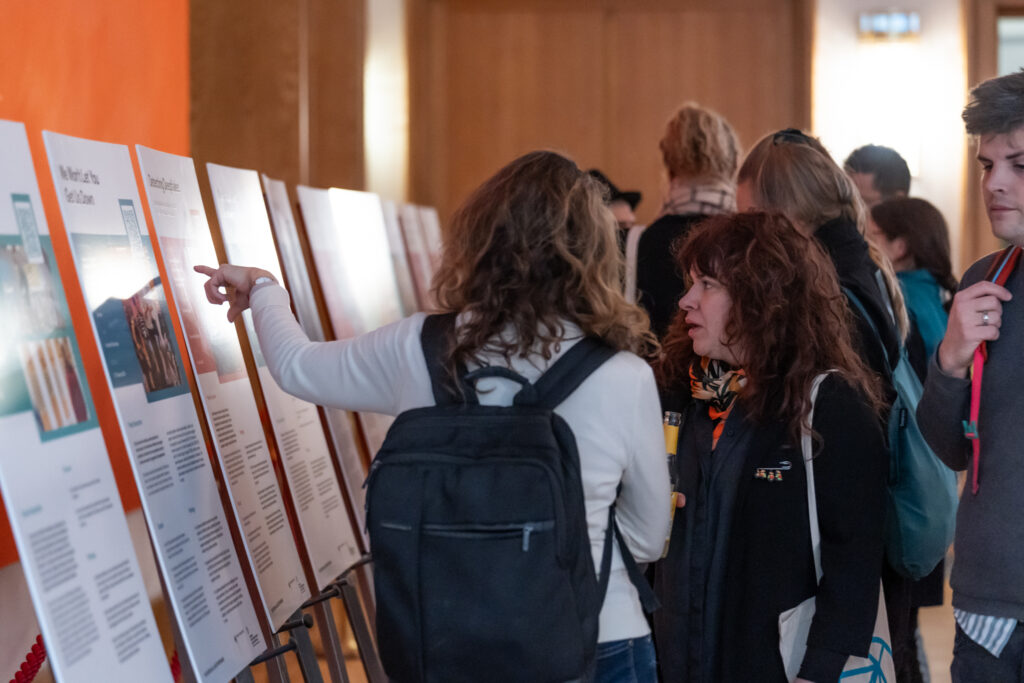“Dear guests, dear Elianna,
It is my great pleasure to honour today an artist whose work far transcends art. Elianna Renner works not only at the junction of biography and history, she shapes the gaps – the gaps between people, between memories, and especially importantly, the gaps between communities that are often played off against one another in public perception: the Jewish and Muslim communities.
My connection to Elianna began in early 2024, at a time of great uncertainty and tension, just a few months after 7 October. At that time, I felt the need to organise a Shabbat dinner with friends in Berlin in order to create a moment of community in those hard times. One of the guests was Daniel Laufer, a filmmaker and artist who was a guest of ours in Zurich at the Transalpinen Festival 2022.
In one of our conversations, I explained to him how hard it is for me to find Jewish artists from Switzerland working on similar topics to us with not_your_bubble – topics like identity, remembrance, and the question of how belonging and connection are created. Daniel said, ‘I know someone.’ And in no time, I was put in touch with Elianna. Since then, we have been engaged in a lively dialogue about art as a medium for encounter and on how we can develop collaborative projects that transcend the classic dividing lines of Jewish and Muslim identities.
What immediately impressed me about Elianna was her deep understanding of how remembrance cannot be a static occasion. She creates spaces in which history comes alive – not only to preserve the past, but also to make the past useable for the present. An especially impressive example of that approach can be seen in her project Köfte Kosher, which she launched in Bremen. Köfte Kosher began as a Jewish-Muslim youth project and developed into one of the most visible artistic sites of remembrance in the Bremen city centre. Working with a group of young people, Elianna created a remembrance pavilion dedicated to twelve people who were murdered on the basis of their religion, skin colour, sexual orientation, a disability, or because they were homeless. One of the twelve was Marwa El-Sherbini, murdered at the Dresden District Court in 2009 on the basis of anti-Muslim hatred. Elianna showed not only how important it is to confront the past, but also how to increase awareness among young people about such topics as civil courage and the fight against group-based hatred.
A further impressive example of her work is the project Tracking the Traffic, in which Elianna sheds light upon historical and current forms of the trafficking of women. The starting point of the project was her extensive research on the history of the Jewish pimping ring Zwi Migdal, which forced women from Eastern Europe into prostitution during the late 19th and early 20th centuries. Elianna travelled to multiple continents in the process, speaking with historians and artists while creating multimedia installations that portray the often-forgotten biographies of these women.
Especially moving is the personal dimension of the project. While in Buenos Aires, Elianna initiated a memorial ceremony for Raquel Liberman, the only woman to have brought a pimping ring to court. In doing so, Elianna not only transformed an overgrown cemetery into a place of remembrance, but also created a collective space for bringing awareness to that which has been forgotten.
Elianna’s work always also addresses the question of how we remember, and whom remembrance belongs to. She challenges us to leave our comfort zone and confront the often uncomfortable reality that remembrance is political. She makes clear that remembering doesn’t only involve shedding light on the past, but also responsibility: responsibility for how we treat the past in the present, and how we can learn from it for the future.
At a time in which Jewish-Muslim relations are often burdened by polarisation and prejudice, Elianna’s work is a sign of hope. She shows that art can be a shared space – a space that builds bridges where others see only trenches.
Elianna, your work teaches us that community and belonging aren’t simply givens – community and belonging are things that we build together. You show us that we don’t have to hold fast to existing divisions, but rather that we can create new spaces for dialogue and encounter. You have more than earned the 2024 Omanut-Zwillinberg-Förderpreis that you are receiving today. Your work reminds us that history is never a simple list of dates and facts – history is alive, history is told and shaped by people, and it lives in the stories that we share with one another.
Dear Elianna, I thank you for your commitment, for your courage to face the difficult topics, and for your tireless work creating rooms in which we can encounter one another. I very much look forward to everything we will create together in the future – to new stories, new connections, and new spaces filled with many voices.
Congratulations on this well-deserved award!”
16 January 2025, DialoguePerspectives e.V. Chairperson Hannan Salamat


